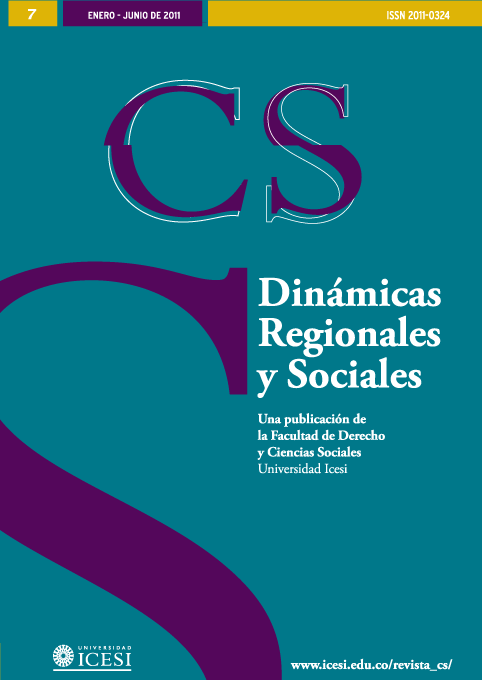Location of the Black Communities in Colombia: the Absence of the Insular Afro-Caribbean.Location of the Black Communities in Colombia: the Absence of the Insular Afro-Caribbean
DOI:
https://doi.org/10.18046/recs.i7.1046Keywords:
Afro-Colombian studies, Afro Caribbean, Native, MobilizationAbstract
The predominance of a ethno-territorial model from the experience of the “Present Pacific”in the recognition model proposed by the Law 70 of 1993, or the Law of black African
descendant communities, has acted as a referent in the history and memory of the organizational
and mobilization processes of black population in the country. In this sense,
facing the predominance of a Pacific referent in the memory of the afro mobilization, this
article seeks to present some of the voids in afrocolombian studies from two situations:
1) the void of what is afro-caribbean in the process of colombian national formation and
b) the emptiness of the mobilization of the native population of the archipelago of San
2ndrés, Providencia and Santa Catalina as part of the history of mobilization of black
communities in the country.
Downloads
Downloads
Published
Issue
Section
License
© Reserved Copyright
Material in this publication may be reproduced without authorization, provided the title, author and institutional source is acknowledged.
The content published in Revista CS is distributed under the Creative Commons BY-NC 4.0 Attribution/Recognition-NonCommercial 4.0 International license.
You are free to:
Share — copy and redistribute the material in any medium or format.
Adapt — remix, transform, and build upon the material.
Under the following terms:
Attribution — You must give appropriate credit , provide a link to the license, and indicate if changes were made . You may do so in any reasonable manner, but not in any way that suggests the licensor endorses you or your use.
NonCommercial — You may not use the material for commercial purposes.












